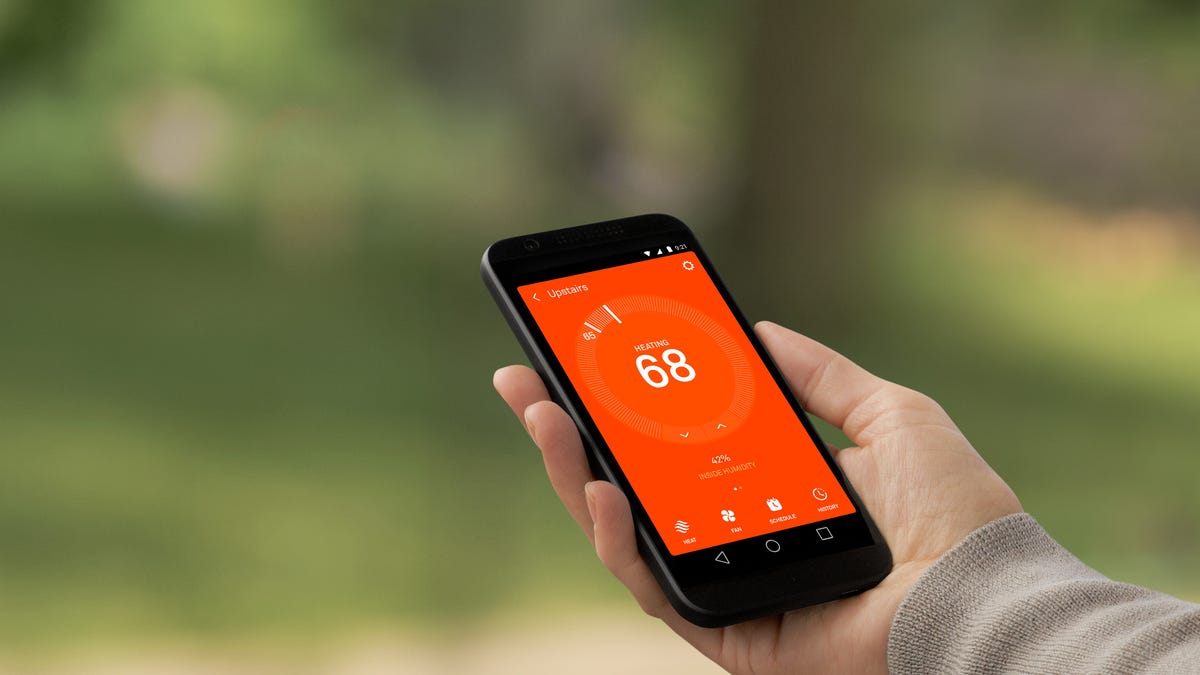How Nest aims to own your smart home
Looking to set up a smart home next year? Expect to see a lot of Nest's smart thermostats, smoke detectors and security cameras.
Alphabet, the mama-bird parent company of Google, is hoping 2016 is the year Nest leaves the, well, you know what.
Nest, which makes thermostats, smoke detectors and security cameras that connect to the Web, has operated pretty much independently since Google bought the company in 2013. And that was before the company formerly known as Google pulled apart its various divisions to turn them into individual companies.
So while the pieces of Alphabet will begin the new year figuring out how to brand their websites or set up marketing plans, Nest can hit the ground running with its audacious but often understated mission: making the smart home a reality for you and me, and not just the muckety-mucks in Silicon Valley.
For Nest, the key to owning the smart-home market involves more than just selling you a thermostat or smoke detector (although it would very much like for you to buy those, too). Its ambition rests on making sure all your Web-connected products can communicate and interact with one another. For example, if your Nest security system senses someone lurking, it can tell your Internet-connected lights to switch on. The dream is digital, domestic nirvana.
"It's not about whiz-bang party tricks," said Greg Hu, who heads the Works With Nest program, the software initiative that wants to create inter-device harmony. Instead, it's about creating interactions that can save you money or keep you safer, he said.
The company launched the Works With Nest program last year. In October, it introduced Weave, software that allows devices to communicate with one another. About 12,500 developers are already part of the program, said Hu. Between 70 and 80 products -- from companies including Logitech and security system maker ADT -- work with Nest devices.
The program will be one of Nest's biggest priorities next year.
There's good reason for that. The promise is huge. Research firm Gartner says that in 2016, 5.5 million new things will become Internet-connected every day.
But we're not there yet. People are starting to get interested in a system of smart devices for their homes, but few have them. In 2014, 34 percent of US consumers said they'd like to have a digital system to control all the lights in their house, according to Forrester Research, but only 1 percent actually had a system and only 2 percent had tried a digitally remote-controlled energy management system.
"We're going to see a [move] toward an ecosystem," said Brian Solis, an analyst at the Altimeter Group. "Suddenly everything would be interconnected and controllable for Nest."
That's great for the Works With Nest program, assuming device makers don't mind cozying up to Nest. If, say, the manufacturer of a Web-connected lighting system allows its software to be compatible with Nest's, who's to say Nest couldn't turn around and make its own lighting system?
That hasn't been a problem, Hu said, because Nest is selective about the kinds of devices it makes, meaning most companies shouldn't worry about Nest treading on their territory.
"I think a lot of manufacturers know Nest isn't going to make a fridge," said Hu.
Maybe, but the big question for 2016 is which device will Nest release next? Hu is mum about what it could be, but analysts have their guesses. Frank Gillett, an analyst at Forrester who covers the smart-home market, speculates it could be a sensor to detect water leakage. That would certainly fit in with Nest's aim to save you money and keep you safe. But again, the company won't say.
Either way, Nest is hoping that next year the smart-home market will finally take flight.


